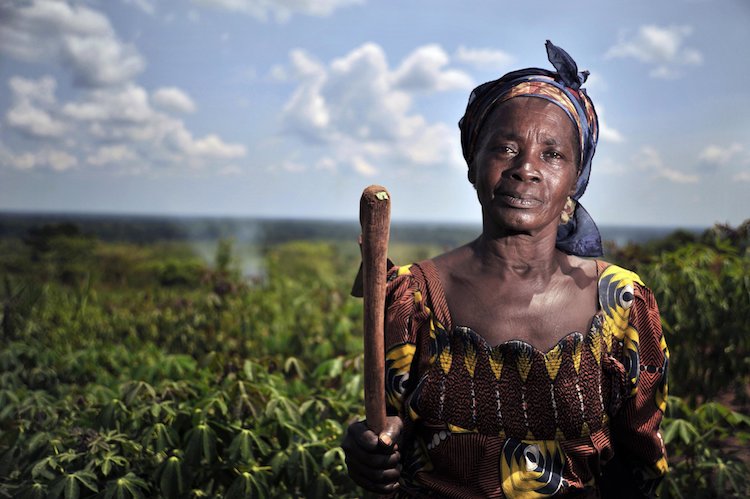
By Jaya Ramachandran
ROME (IDN) – More than enough food is produced in the world to feed everyone, yet 815 million people go hungry, according to FAO, the Food and Agriculture Organization of the United Nations. How to ensure that a growing global population – projected to rise to around 10 billion by 2050 – will have enough food to meet their nutritional needs, is therefore one of the greatest challenges the world faces. Experts see in agroecology a solution.
Agroecology, they say, can help transition to sustainable food and agriculture systems that ensure food security and nutrition for all, provide social and economic equity and conserve biodiversity and the ecosystem services on which agriculture depends. (P01) GERMAN | INDONESIAN | JAPANESE TEXT VERSION PDF
Family farmers must remain central to bringing agroecology to scale, FAO Director-General José Graziano da Silva stressed in his closing remarks to the Second International Agroecology Symposium from April 3-5 at FAO in Rome.
“It’s time to scale up the implementation of agroecology,” Graziano da Silva said. “We have succeeded in moving from talking about what is agroecology, to now having specific program targets to be achieved in the next few years, and strong support from civil society and those governments who have worked hard to make this symposium a success,” he added.
“When we speak of agroecology, we are not speaking of strictly technical matters. I would like to stress the social aspect, so when we say that we are going to strengthen the role of agroecology in FAO’s work, we are saying that we are going to strengthen the role of family and small-scale farmers, fisher folk, pastoralists, women and youth,” he said.
The FAO Director-General also highlighted the Decade of Family Farming (2019-2028) and the Decade of Action on Nutrition (2016-2025) as opportunities to raise awareness about the valuable link between family farming, agroecology and sustainable development.
The Symposium underscored the need to recognize that scaling up agroecology is a key element to achieve the Sustainable Development Goals (SDGs), endorsed by the international community in September 2015. Goal 2 aims to “end hunger, achieve food security and improved nutrition and promote sustainable agriculture.”
The Symposium brought together more than 700 participants with representatives from 72 governments, around 350 civil society and other non-governmental groups, and 6 UN organizations.
The Symposium Chair Braulio Ferreira de Souza Dias emphasized in his summary that “Agroecology offers multiple benefits” – including for increasing food security and resilience, boosting livelihoods and local economies, diversifying food production and diets, promoting health and nutrition, safeguarding natural resources, biodiversity and ecosystem functions, improving soil fertility and soil health, adapting to and mitigating climate change, and preserving local cultures and traditional knowledge systems.
“It is critical that legal and regulatory frameworks are implemented in a way that ensures transformative change towards sustainable agriculture and food systems based on agroecology, and respects, protects and fulfills farmers’ rights and access to productive resources such as land, water and seeds.”
The Chair’s Summary also drafts a way forward including a list of “urgently needed” commitments from stakeholders. Governments are called on to develop policy and legal frameworks to promote and support agroecology and sustainable food systems, and to remove “perverse incentives” for unsustainable agriculture.
The Summary calls on FAO to develop a detailed 10-year action plan for agroecology and to begin implementing the Scaling up Agroecology Initiative.
Consumers and citizens are urged to act as agents of change in the food system to promote responsible consumption. Donors are asked to increase long-term funding to agroecology, while academia and research organizations are encouraged to increase research on agroecology.
On the sidelines of the Symposium, the World Future Council (WFC) with FAO and IFOAM – Organics International kicked off a global contest for the visionary policies that create enabling environments for agroecology, the 2018 Future Policy Award. The winners will be recognized in a ceremony at FAO in Rome later in 2018.
The Future Policy Award 2018 is supported by the FAO, the World Future Council, IFOAM-Organics International with the assistance of Green Cross International, DO-IT – Dutch Organic International Trade and Sekem Group (Egypt).
Every year, the most visionary policies tackling humankind’s most pressing challenges are commended with the Future Policy Award (FPA), the only global award hitherto that recognises policies rather than people. The World Future Council has awarded this annual prize since 2010 in partnership with UN agencies.
“This year’s Future Policy Award will reveal proven solutions that make sustainable agriculture possible. The World Future Council is determined to further cooperate with FAO in order to identify and share the best policies for advancing agroecology in the interest of future generations. It is critical that we learn from the policies that are already making an impact,’’ says Alexandra Wandel, Director of the World Future Council.
“World Leaders and the UN General Assembly recognise the potential of agroecology to achieve healthy nutrition for all and to address social injustice, climate change and biodiversity loss”, notes Peggy Miars, World Board President of IFOAM – Organics International. “We see it happen in numerous countries where the policy framework gets it right. Let’s showcase and reward these innovative policies!” [IDN-InDepthNews – 06 April 2018]
Photo: ©FAO/Riccardo Gangale
IDN is the flagship agency of the International Press Syndicate
Facebook.com/IDN.GoingDeeper – twitter.com/InDepthNews











